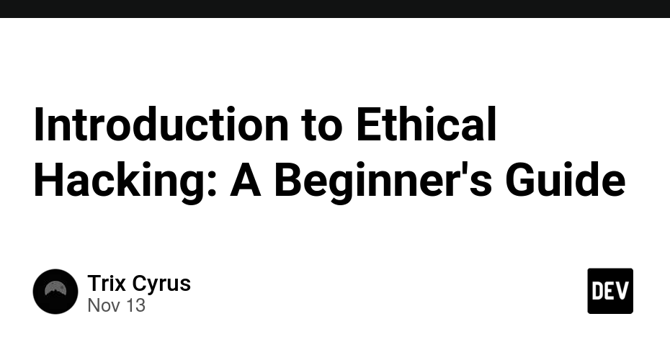Dev
1M
73

Image Credit: Dev
Introduction to Ethical Hacking: A Beginner's Guide
- Ethical hacking involves testing systems, networks, and applications for vulnerabilities to help identify and fix security flaws.
- Ethical hackers use the same tools and techniques as black-hat hackers but for constructive purposes.
- Ethical hacking helps ensure an organization's security, prevents damaging data breaches, and helps companies adhere to compliance standards.
- Ethical hacking can be classified into several types based on the scope and focus of the tests.
- An ethical hacker plays the roles of vulnerability assessment, penetration testing, reporting and remediation, and security awareness.
- Technical and non-technical skills required to become an ethical hacker include knowledge of networking, programming, Linux, security concepts, security tools, critical thinking, and problem-solving.
- The penetration testing lifecycle includes planning and reconnaissance, scanning, gaining access, maintaining access, and analysis and reporting.
- Legal and ethical considerations in ethical hacking include written permission, NDAs, and following the laws and regulations of respective countries and industry-specific regulations.
- Starting a career in ethical hacking involves education and training, certifications, practice, and staying updated on the latest trends, tools, and vulnerabilities.
- Ethical hacking is a rewarding career path for those passionate about cybersecurity and protecting systems from cyber threats.
Read Full Article
4 Likes
For uninterrupted reading, download the app